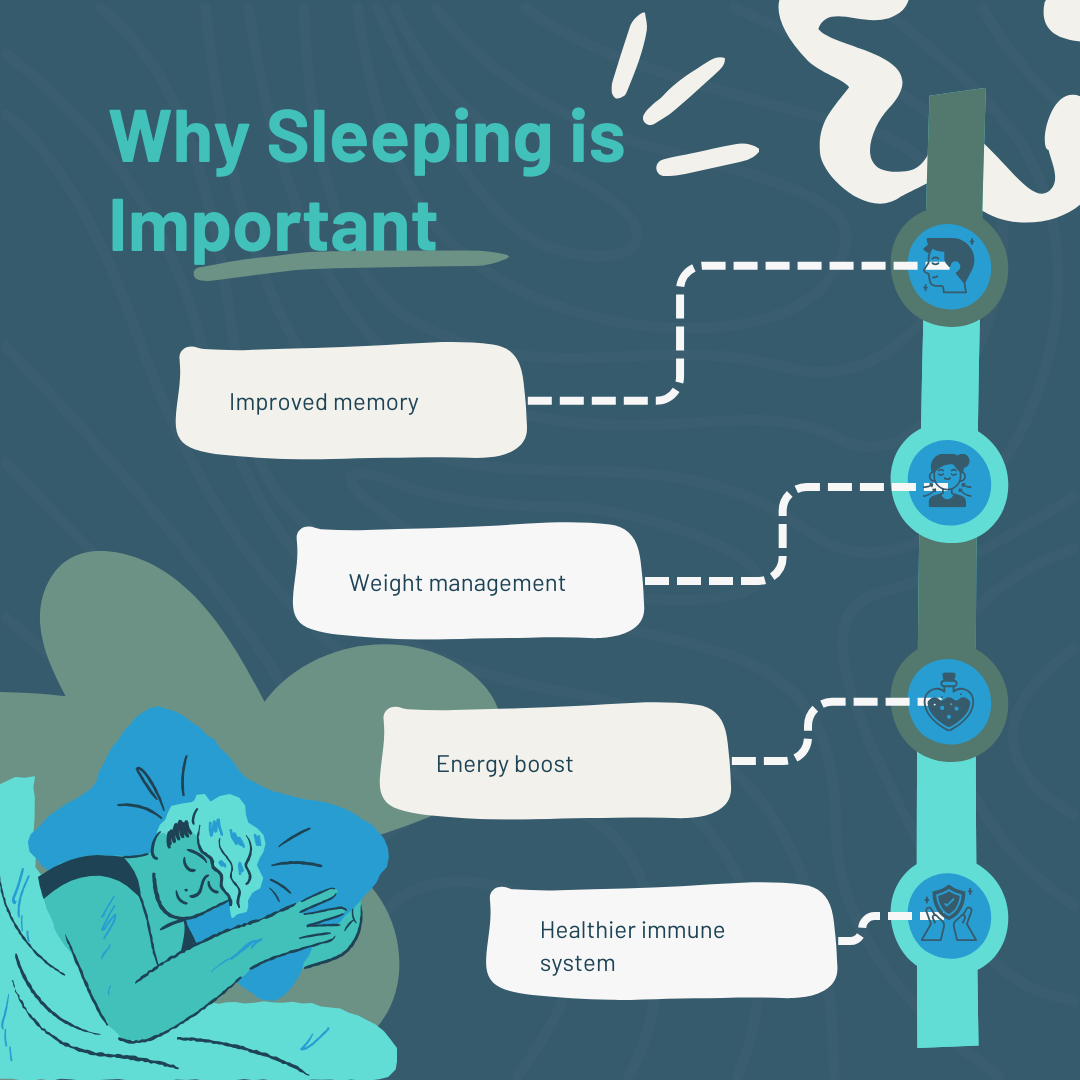We’ve all been there—tossing and turning at night and feeling groggy the next day, a clear sign of how one poor night’s sleep can fog our brains and hinder our performance.
Sleep isn’t just crucial for physical restoration; it’s vital for cognitive function and brain health. This blog explores the critical relationship between sleep and brain health, how lack of sleep disrupts our mental functions, and offers strategies to enhance your sleep quality and cognitive well-being.
The Importance of Sleep
Sleep is an essential physiological process that happens in stages, including non-rapid eye movement (NREM) and rapid eye movement (REM) sleep, each vital for different brain functions. Our circadian rhythms, or internal biological clocks, regulate these sleep cycles, helping align our body functions with day and night.
Adults generally need 7-9 hours of sleep, but factors like age and lifestyle can alter these needs. Understanding sleep’s basics is the first step to appreciating its impact on brain health.
How Sleep Deprivation Affects Cognition
Lack of sleep significantly affects memory, attention, concentration, and decision-making abilities. It hinders memory consolidation, disrupts neurotransmitter levels affecting focus, and impairs problem-solving capabilities, increasing impulsivity and risk-taking behaviors.
Health Risks of Chronic Sleep Deprivation
Chronic sleep deprivation can lead to severe health issues, including an increased risk of neurodegenerative diseases like Alzheimer’s, mood disorders such as depression and anxiety, and overall cognitive decline. These conditions underscore the critical need for adequate sleep.
Enhancing Sleep Quality
Improving sleep quality involves more than just the duration of sleep; it’s about enhancing the quality. Here are some strategies:
- Stick to a consistent sleep schedule to regulate your circadian rhythm.
- Optimize your bedroom environment to be cool, dark, and quiet.
- Practice relaxation techniques before bed to signal your body it’s time to wind down.
- Limit screen time and stimulating activities before sleep to promote melatonin production.
Conclusion
Prioritizing quality sleep is essential for maintaining brain health and cognitive function. If you struggle with sleep, consider reaching out for a visit to tailor strategies that enhance your sleep habits, ensuring you achieve the restorative sleep your brain needs.
For personalized guidance on optimizing your sleep and cognitive health, visit us at Lake Town Wellness or contact our team to schedule a visit. Let’s work together to ensure your nights are restful and your days, clear and productive!

